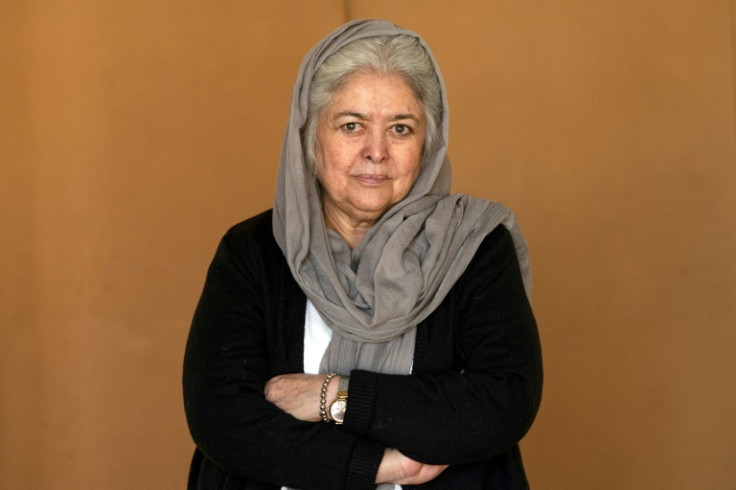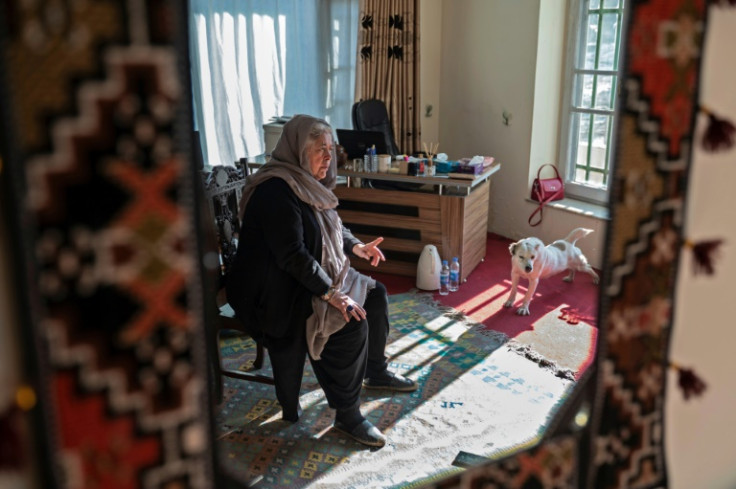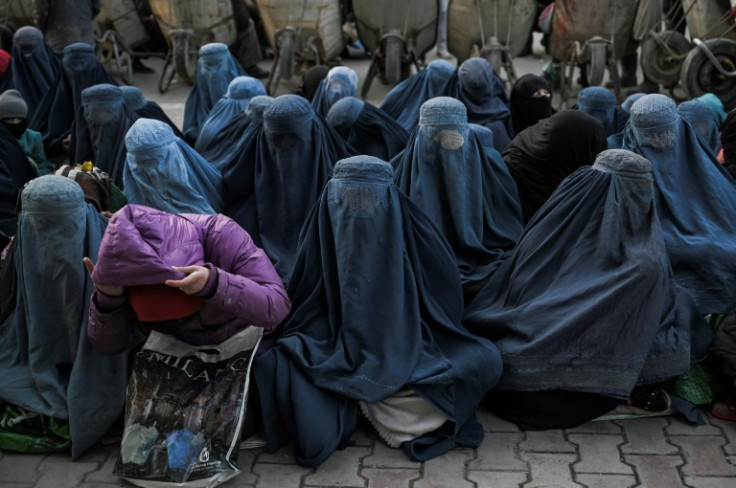Afghan Women's Activist Fights Taliban And Self-doubt

Mahbouba Seraj is a rare dissenting voice in Afghanistan, but the veteran activist has begun to doubt whether the world is listening when she speaks out against the Taliban government's abuses.
Risking retribution from her country's rulers, Seraj has argued tirelessly against the dramatic spike in restrictions on women's freedoms.
But, facing an international community which she said seems too apathetic to respond, she wonders whether there is any point to her struggle.
"I'm still trying to fight and I still want to find an answer for all of this," the 74-year-old told AFP, her gaze drifting to the window as she looked out at the mountains cradling her Kabul hometown.
"It's not that it's becoming more difficult -- it's becoming worthless. That's the little fight that I have with (myself)," she said, nervously pulling a lapis lazuli ring off and on her finger over and over.
Seraj has a role both rarified and agonising in Afghanistan, where she returned in 2003 after around a quarter century of self-imposed exile during the Soviet occupation, civil war, and first Taliban regime.
As the niece of former king Amanullah Khan and a high-profile elder stateswoman, she has skirted the Taliban government's clampdown on women activists since the group returned to power in August 2021.
Many have been detained for days or gone into hiding, following a crackdown on protests prompted by the shutdown of girls' education.
Seraj flies in and out of the country to meet with diplomats, gives impassioned speeches at the UN, and conducts press interviews without hiding her identity -- so far untroubled.
It is a high-wire balancing act always threatening to crash down.
"Every single day that possibility hangs there," she said. "I don't have any trust in anything, that anything will be absolutely 100 percent safe."
"It depends on whoever does not like me. And one day, the one that does not like me will kill me, most probably."
Under the ousted US-backed government, Seraj advocated for women's participation in the Peace Jirga and the High Peace Council, both efforts to end the conflict with the Taliban through dialogue.
Now she focuses her work on supporting women with projects in five provinces, including a shelter for dozens of abused women and children and providing cash to female-headed households that have lost their male breadwinner.
But Seraj never joined sporadic protests that erupted after Taliban supreme leader Hibatullah Akhundzada shut down girls' secondary schools and banned women from universities.
For her, engagement with the new administration is necessary -- though she acknowledged that other Afghan women may not agree.
"Standing in front of the Taliban and telling them that this is what I'm doing and that's how I'm going to do it," as she put it.
Each government edict that curtails women's freedoms is a "taxing moment", Seraj said, but condemnation from other Afghan women for talking to Taliban authorities also takes its toll.
"It's like something that's eating inside of me," she said.
Seraj may fiercely defend women's rights, but she has lost faith in the international community, even as it professes to do the same.
In a defeatist speech at the UN Human Rights Council in September last year, the activist raised her hands in frustration.
"This is the last time I'm going to come somewhere and talk about this to the world, because I'm sick and tired of doing it," she said.
"How many times am I supposed to yell and scream and say: 'World pay attention to us, we are dying'?"
Back in her Kabul office, she told AFP: "I realised that there are really no gains, so I'm not going to even bother anymore."
But in the same breath she added, "the one thing that I do have, and that's the one that I've been using all this time, is the power of my language".
It is all a part of the war she is waging with herself.
"There's got to be a -- how shall I say? -- a glimpse," she said, her eyes drifting to the mountains again.
"A little light flickering somewhere, something, something," her fingers rubbing together.
"Something for all of us to hold on to."



© Copyright AFP 2025. All rights reserved.





















